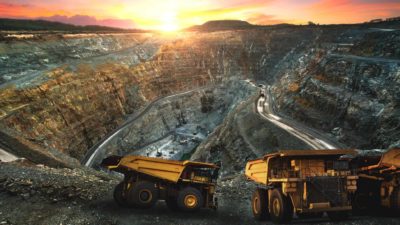Climate change is a theme triangulating among investor groups and asset managers in 2021. Players on both sides of the argument are trying to strike a balance on how to tackle the challenges ahead.
The COP26 Summit on climate change is over. One outcome is that many nations will commit to a 'phasing down' of coal use in the coming decades.
A scathing assessment
Despite Australia's participation at the summit, a report from the activist Investor Group on Climate Change (IGCC) has punished a number of ASX-listed companies and their boards for not taking climate risks seriously.
The IGCC has specifically called out 15 ASX-listed boards. The group says its analysis "reveals that climate change is siloed as a separate risk issue and not integrated into the overall company strategy and risk management approach."
And with good measure – the IGCC isn't just some fancy group that's been slapped together overnight. It is a collaboration of Australian and New Zealand institutional investors focused on the impact of climate change on investments.
It forms part of the finance world's response to the contentious issue of climate change. While the IGCC is leading the front from 'down under', the Net Zero Asset Managers initiative is contributing on an international scale.
It has over 220 signatories and collectively has $57 trillion in assets under management. That's trillion with a capital T, meaning this is serious, market-moving capital.
Retail conglomerate Woolworths Group Ltd (ASX: WOW) is one of the 15 ASX-listed companies named in the IGCC's report. They say Woolies lacks the skills to "lead the corporate transition to net-zero emissions by 2050, and it is unclear how they are addressing this gap."
Woolworths joins the list with some of Australia's largest emitters of carbon and some of Australia's largest mining giants.
Here are the details.
How does the IGCC analysis reflect on Woolworths?
The report, titled A Changing Climate: What investors expect of company directors on climate risk, is a deep dive into the climate efforts of Australia's 15 most carbon-intensive names.
Woolworth's isn't singled out in the IGCC's analysis per se; rather, it is tarred with the same brush as its counterparts in the criticism.
Nonetheless, the issue appears relevant to market watchers. Investors are starting to pay attention to carbon polluters and their response to climate change. They want to know how companies intend to integrate climate risks into corporate strategy.
For instance, several shareholder meetings have advocated board members be removed this year due to a failure to acknowledge these risks.
In fact, the IGCC's report alludes to Exxon Mobil Corp. Exxon Mobil lost 2 board seats this year "due to growing concern by investors over the risk of failing to adjust its business strategy" to combat climate risks.
Woolworths, along with its constituents in the report, is said to view climate change risk as a "reputational or environmental risk and not as a significant business or investment risk."
In its assessment, the IGCC found that whilst many companies – including Woolworths – identified the need for climate skills on their boards, few identified the "broader transition and disruption expertise".
Interestingly, it found that none on the list were comprehensively disclosing board skill sets. Alongside climate-specific disclosures, this makes it hard for investors to form a view on "how prepared these boards are for the transition," says the IGCC.
What is climate change risk expertise?
The IGCC calls on companies like Woolworths to adopt board members with climate risk expertise. But to date, this has proven to be a challenging definition and is difficult to quantify.
Nonetheless, the IGCC advocates Australian boards to "ensure investor confidence" by integrating a number of measures to reflect the times.
As such, the IGCC defines these skills as:
- Skills in disruption and transition
- Ability to challenge existing business models
- Knowledge of climate change
- Change management skills
Companies should integrate climate risks into overall strategy as well, including capital budgeting and risk management, the IGCC reckons.
Remuneration can then be tied to climate change targets instead of addressing economic milestones in isolation, the report finds.
But why would these companies adopt these measures in the first place? And what is the incentive for shareholders?
The IGCC's director of corporate engagement, Laura Hillis, offers a clear answer to both of these questions:
Boards that fail to recognise the risk of climate change and their role in driving the company transition to a low carbon business, will leave the company and investors exposed to unacceptable financial, strategic and market risks. Not to mention they will miss out on the opportunities on the decarbonisation pathway, including jobs for regional communities.
Hillis continued:
There are huge opportunities for Australian companies in the transition to net zero emissions. Investors want companies to capitalise on the transition, unlocking revenue and jobs for Australian communities. Investors are ready to back these opportunities.
Pressure continues to build on companies to realise there are climate risks ahead, especially those outlined at the COP26 Summit. Investors will, therefore, be keeping an eye on this space as more developments arise in the coming years.
Woolworths share price snapshot
The Woolworths share price has fared well during the past 12 months, posting a return of 19%.
This year to date, it has gained almost 16%. Both of these returns are ahead of the benchmark S&P/ASX 200 Index (ASX: XJO) return of around 14% in the past year.









